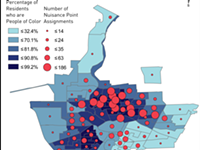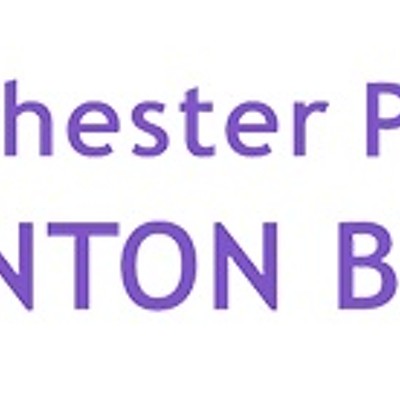[
{
"name": "500x250 Ad",
"insertPoint": "5",
"component": "15667920",
"parentWrapperClass": "",
"requiredCountToDisplay": "1"
}
]
The legislation passed with a vote of 6 to 3, with Councilmembers Mitchell Gruber, Jacklyn Ortiz, and Elaine Spaull voting against.
The city has had a Nuisance Abatement Law since 1985, and it has amended it several times. Under the previous version, a property or business that violates a law could be assigned 3, 4, or 6 points, depending on the classification of the offense.
If a location received 12 nuisance points within a six-month period or 18 nuisance points in a 12-month period, it would be deemed a public nuisance and would risk having the city take serious action, including closing the building, suspending or revoking any city-issued business license, and suspending the ability to secure grants from the city.
Among the changes Council approved last night:
- The law is moved from the section of the City Charter that deals with powers of the mayor's office to the section for the Department of Neighborhood and Business Development.
- Point values have been revised. Violations involving firearms and dangerous weapons and the sale of controlled substances and marijuana are assigned 10 points. All other violations are now 6 points.
- Some violations that could be better handled through the Municipal Code Violations Bureau have been eliminated from the abatement law.
- A Nuisance Point waver process is established and will be standardized across the city's Neighborhood Service Centers, which work with property owners and businesses to correct their nuisance point violations. If a location has not received other points in the past year, the property owner can work with the Neighborhood Service Center to create an abatement plan.
- There is more coordination between the Municipal Code Violations Bureau and Neighborhood Service Centers.
- A nine-member Citywide Nuisance Advisory Board will be established, with one resident and one business owner from each city quadrant and a resident from Center City. When a location is at risk of being deemed a nuisance, the property owner will be able to contest the assessment before the board. The board will work with that location's Neighborhood Service Center to decide whether the points should be assessed.
- Once a location has enough points to be deemed a nuisance, the property owner will be notified of a mandatory abatement meeting, where the owner and the Neighborhood Service Center Administrator will create an abatement plan. If the owner abides by the plan, no further action will be taken, and the points will be allowed to age out.
- The law now includes an innocent-owner defense. Once a location has hit its threshold, the city's Law Department will decide whether to take court action or hold an administrative hearing. In the event of a hearing, the property owner or tenants can raise a defense of innocence by showing that they did not know of the nuisance actions, or that they "did all that reasonably could be expected" to correct the activity.
- If a location is to be closed, tenants will be given 30 days to vacate the premises.
Rochester's Nuisance Abatement Law is in a precarious position. The abatement law impacts a large part of living and working in a city: Mini markets, rental houses and apartment buildings, music venues, restaurants, and any number of other businesses and properties can be issued nuisance points when a violation occurs.
The system is meant to crack down on problem establishments and properties, but over the years, critics have complained that it's unfairly applied; that businesses are penalized for the actions of their patrons; that the law doesn't really remedy the sources of the nuisance, it just shuffles things around to different neighborhoods; and that it has lasting human consequences when people are evicted.
In 2016, the city hired Strategic Community Intervention, former Mayor Bill Johnson's consulting firm, to review the abatement law. The proposed amendments are a result of that study and other discussions the city had with neighborhood associations, business and property owners, and others, Warren wrote in the introduction to the legislation.
"This is something the city has been looking at for some time," says Deputy Corporation Counsel Patrick Beath. "And it did dovetail, right around the time we started drafting the revised law, with a couple of court decisions, both about the City of Rochester and its current nuisance law and also similar laws in other cities in the state."
City Council's Neighborhood and Business Development Committee held two public hearings in May about the proposed amendments. Several neighborhood associations, including those from the 19th Ward and the East End, supported the legislation, but a couple of landlords said they feared it would unfairly penalize property owners for the actions of their tenants.
The New York Civil Liberties Union, in a letter to City Council, commended the city's initiative to make changes to the law, but raised several concerns:
- While the legislation adds procedures for building owners to work with the city to resolve concerns, tenants aren't adequately protected. Tenants aren't given notice of the assessment of nuisance points and aren't asked to participate in meetings to discuss an abatement plan.
- "Our concern around that is there have been reports across the nation that indicate when building owners and landlords work with a city to abate a nuisance, the most common way is by evicting tenants," says Scout Katovich, an NYCLU legal fellow.
- Rochester's abatement law has a carve-out to protect victims of crime, including domestic violence, dating violence, stalking, or sexual abuse, by not assigning points to a property when the violation involved a victim who is connected to that property. But the way the law is phrased, Katovich says, attaches protections for crimes that have a victim, and some situations, like a noise violation, are considered victimless.
- While the proposed legislation creates an innocent-owner defense, it still puts the burden of proof on the property owner or tenants. It should be the city's responsibility, the NYCLU says, to show that the points were not assessed against innocent parties or victims.
- Based on a June 2017 court decision against the Town of Groton in Tompkins County, Rochester's nuisance law violates a person's right to petition the government (by calling the police) because it "authorizes the imposition of penalties based on criminal activity or other offenses, which generally come to the attention of Rochester through 911 calls and police reports," the NYCLU's letter says. That creates a chilling effect and keeps people from calling the police.
Katovich also says the city is applying the current nuisance law frequently, and there has been more enforcement in communities of color.
Nuisance ordinances "are never a good idea," Katovich says. "They don't solve the problems. They only end up hurting people who are already vulnerable. And I would suggest that Rochester think about what are the issues it's really trying to get at, and what are the other tools it already has in its wheelhouse that could do a better job at getting at those problems."
Councilmember Michael Patterson, chair of Council's Neighborhood and Business Development Committee, says he believes the nuisance law is a working document. "It may well be open to amendment at a later point in time," he says, "once we've had a chance to review the impact and see how it's working."
Speaking of...
Latest in News
More by Jake Clapp
-

Report: Rochester nuisance law has racial impact
Aug 15, 2018 -

ROCK | Incubus
Aug 8, 2018 -

Album review: 'Honey from the Rock'
Aug 1, 2018 - More »








